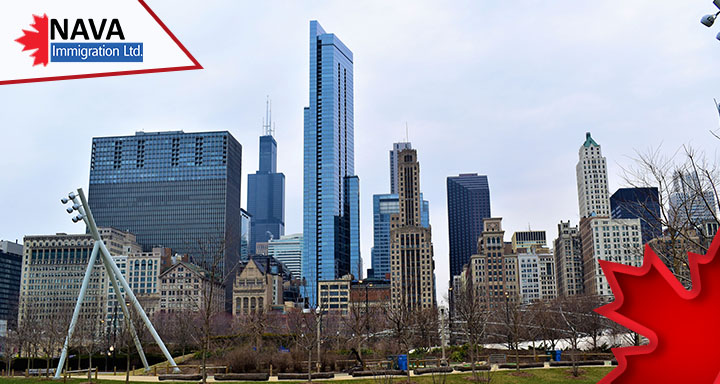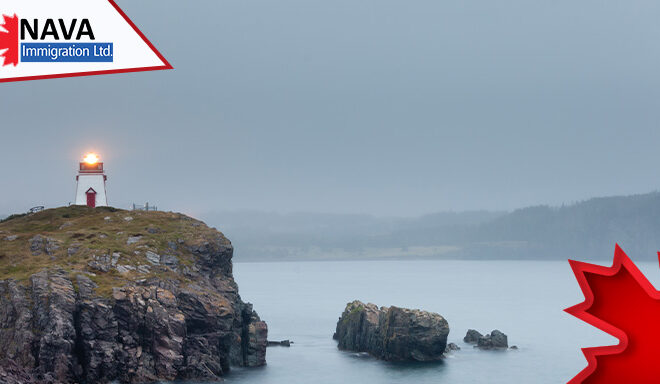Pilot Programs Offer PR Options for Quebec Temporary Residents
Pilot programs offer PR options for Quebec temporary residents. Thus, Francophones seeking to attain permanent residency might find pilot programs helpful.
International students, as well as skilled workers living in Quebec, have seen two key PR streams paused:
- The Regular Skilled Worker Program (along with the Skilled Worker Selection Program, set to replace it on November 29
- The Quebec Experience Program – Graduates
As alternate routes to PR, temporary residents of Quebec open to settling in their provinces might wish to consider some of the federal government’s pilot programs, many of which are geared toward French speakers.
| Pilot Program | Regional Placement | Best For |
| The Francophone Minority Communities Student Pilot | Depends on the location of the approved DLI | – Students who are pursuing post-secondary studies in French, outside Quebec. – Post-secondary students from eligible Francophone countries. |
| Welcoming Francophone Communities Initiative | Select communities in: -British Columbia -Manitoba -New Brunswick -Nova Scotia -Ontario -Saskatchewan | Francophone immigrants who have been accepted into a chosen Francophone community outside Quebec |
| New Brunswick Critical Worker Pilot | Various parts of New Brunswick, depending on location of the employer | Workers with specialized skills in fields including, but not limited to: -Agriculture -Aquaculture -Manufacturing -Farming -Transportation -Forestry |
The Francophone Minority Communities Student Pilot (FMCSP)
Pilot programs offer PR options for Quebec temporary residents. The first one is the Francophone Minority Communities Student Pilot.
On August 26, Canada declared the FMCSP a pathway to welcome French-speaking students from minority francophone communities and provide them with a pathway to settle permanently in the nation.
Students accepted under the FMCSP might be eligible to apply directly for PR after graduating from their program, provided that:
- They are a resident in Canada at the time of application
- They have a valid temporary status in Canada when applying for PR
- They have obtained an eligible degree or diploma while participating in the FMCSP
Who Is Eligible To Apply Under The FMCSP?
In order to be eligible under the FMCSP, applicants should:
- Be a citizen of an eligible Francophone country
- Have a letter of acceptance from a participating Designated Learning Institution (DLI) that indicates that they are applying under the FMCSP:
- Note that the program of study must:
- Be at a post-secondary level
- Be a full-time position
- Be at least two years of study or more
- Lead to a degree or diploma
- Have French as a primary language of instruction (more than 50% of classes under the program are taught in French)
- Have enough money to cover their:
- Tuition expenses
- Living expenses
- Provide a medical exam
- Provide a police certificate
- Demonstrate that their French ability is at least at a level 5 according to the Niveaux de compétence linguistique canadiens (NCLC) scale
How To Apply Under The FMCSP
To apply under the FMCSP, applicants must first get all the required documents, including:
- A letter of acceptance from a participating DLI
- Proof of financial support
- Approved language test results to prove French language proficiency equivalent to an NCLC level 5
- A medical exam
- A police certificate
Note: Applicants under the FMCSP do not require a Provincial/ Territorial Attestation Letter (PAL/ TAL) when applying for a study permit.
Once these documents are assembled, applicants should create an IRCC account to submit their application and pay the necessary processing fees. They can use the same form and system that standard study permit applicants use.
Applicants should also be sure to specify that they are an applicant ‘who meets another exception listed on the IRCC website’ under the ‘which exception do you qualify for?’.
Specific instructions on how to apply can vary depending on which nation an applicant is applying from.
Successful applicants accepted under the program will receive settlement services upon arriving in Canada. These applicants can also procure open work permits (OPW) for their spouses or dependent children.
Welcoming Francophone Communities Initiative
Pilot programs offer PR options for Quebec temporary residents.
The Welcoming Francophone Communities Initiative started in 2018 as a pilot project by IRCC in partnership with Francophone and Acadian communities outside Quebec. In January 2024, this pilot was renewed and is now a key feature of Canada’s francophone immigration strategy.
Under this initiative, francophone and Acadian communities outside of Quebec can aid the settlement of French-speaking newcomers to their communities. Communities provide settlement plans and services and arrange community events to help newcomers settle in their communities. IRCC also funds these communities to better facilitate these services.
To date, there are 24 francophone and Acadian communities participating in this initiative:
- Alberta
– Calgary
- British Columbia
– Prince George
– Nanaimo
- Manitoba
– Rivière-Rouge
– Seine River Region
- New Brunswick
– Belle-Baie
– Caraquet
– Haut-Saint-Jean Region
– Restigouche West Region
- Newfoundland and Labrador
– Labrador City-Wabush
- Northwest Territories
– Yellowknife
- Nova Scotia
– Chéticamp
– Clare
- Nunavut
– Iqaluit
- Ontario
– Cochrane District (Highway 11 Corridor)
– Cornwall
– Hamilton
– Hawkesbury
– London
– Sudbury
- Prince Edward Island
– Évangéline région
- Saskatchewan
– Moose Jaw-Gravelbourg
– Prince Albert
- Yukon
– Whitehorse
While the initiative is a key feature of Canada’s ongoing francophone immigration strategy, not much is currently known about the candidate’s eligibility under the new version of this initiative. Further details are expected to be announced soon.
New Brunswick Critical Worker Pilot
Pilot programs offer PR options for Quebec temporary residents.
An employee-driven pilot in partnership with IRCC, the NBCWP is a pathway for skilled workers to settle in New Brunswick, with extensive support from their employer towards their settlement. Successful applicants can earn PR status through this pathway.
Applicants must apply to the NBCWP through a participating employer.
Under the NBCWP, the employers provide settlement plans to foreign workers they have employed to arrive, and settle in the province. These plans include (but are not limited to):
- On-the-job skills training
- Housing, transportation, and language training support
- Guidance and support if they wish to pursue a Canadian secondary education equivalency
Who Are The Employers?
The six participating employers were selected for their excellent track records of hiring skilled workers, and for their important contribution to the New Brunswick economy. They are:
- Cooke Aquaculture Inc.
- Groupe Savoie Inc.
- Groupe Westco
- Imperial Manufacturing
- J.D. Irving Ltd.
- McCain Foods
What Are The Eligibility Requirements For Applicants Under The NBCWP?
Under this pilot, applicants must:
- Be presently residing in New Brunswick and have lived in the province for the 12 months prior to submitting an application
- Work for an eligible New Brunswick employer with valid legal authorization to work in the province
- Demonstrate intent to reside in New Brunswick
- Have a valid job/ employment offer from a participating employer in the pilot
- Work in a position with a competitive wage comparable to wages paid to workers in similar positions and in line with the wage structure of the employer
- Be licensed to practice their occupation in New Brunswick, if regulated within the province
What Is The Process Of Applying Under The NBCWP?
Under this program, applicant’s applications are submitted and assessed under the following process:
- Receive and accept an employment offer from a participating employer
- Create an Expression of Interest (EOI) in the New Brunswick Provincial Nominee Program (NBPNP) pool under the Immigration New Brunswick portal (with the aid of the employer)
- Receive an Invitation to Apply (ITA) for provincial nomination
- Develop a settlement plan with your employer to be submitted with your application
- Apply to the Government of New Brunswick for a provincial nomination within 45 days of receiving an ITA
- Submit the application and pay the processing fee
- Receive a provincial nomination from New Brunswick
- Complete an application for PR and submit it to IRCC
- Wait for a decision from IRCC
- Receive PR status if successful
If you seek information on how to begin your Canada immigration application process, you can talk to our NavaImmigration experts at 1800-918-8490, or you can drop us an email at [email protected].





